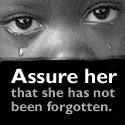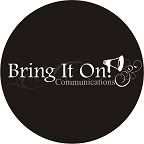The latest book on my reading book combines two of my favorite topics – religion and political science. I have been a Christian for many years, and have a Bachelor of Arts degree in Political Science. So ‘A World Without Islam ’ by Graham E. Fuller is right up my alley.
’ by Graham E. Fuller is right up my alley.
Here is the synopsis of this interesting book :
:
What if Islam never existed? To some, it’s a comforting thought: no clash of civilizations, no holy wars, no terrorists.
But what if that weren’t the case at all? In A World Without Islam , Graham E. Fuller guides us on an illuminating journey through history, geopolitics, and religion to investigate whether or not Islam is indeed the cause of some of today’s most impassioned and important international crises. Fuller takes us from the birth of Islam to the fall of Rome to the rise and collapse of the Ottoman Empire. He examines and analyzes the roots of terrorism, the conflict in Israel, and the role of Islam in supporting and energizing the anti-imperial struggle. Provocatively, he finds that contrary to the claims of many politicians, scholars, theologians, and scholars, a world without Islam might not look vastly different from what we know today.
, Graham E. Fuller guides us on an illuminating journey through history, geopolitics, and religion to investigate whether or not Islam is indeed the cause of some of today’s most impassioned and important international crises. Fuller takes us from the birth of Islam to the fall of Rome to the rise and collapse of the Ottoman Empire. He examines and analyzes the roots of terrorism, the conflict in Israel, and the role of Islam in supporting and energizing the anti-imperial struggle. Provocatively, he finds that contrary to the claims of many politicians, scholars, theologians, and scholars, a world without Islam might not look vastly different from what we know today.
Filled with fascinating details and counterintuitive conclusions, A World Without Islam is certain to inspire debate and reshape the way we think about Islam’s relationship with the West.
is certain to inspire debate and reshape the way we think about Islam’s relationship with the West.
Here is the biography of this author:
Graham E. Fuller is a former vice chairman of the National Intelligence Council at the CIA, in charge of long-range strategic forecasting. He is an adjunct professor of history at Simon Fraser University and is the author of numerous books about the Middle East, including The Future of Political Islam and The Arab Shi’a: The Forgotten Muslims
and The Arab Shi’a: The Forgotten Muslims .
.
Here is an extensive exposition from the author about his book :
:
This is a little off the beaten path for me in terms of book reviews of late. Most of the books I have been reading have a Christian theme or worldview. This book looks at the religion of Islam from a subjective perspective – not necessarily from an Islamic, Judaic, or Christian point of view. It was actually refreshing to read a book by which I had to take a look at Islam that was not from any particular point of view. It was also refreshing to look at the topic from an intellectual/scholarly perspective. It’s been a little while since I’ve been in school, so I had to retrain my brain a little in order to read this book. That is always a good thing!
In the Introduction, Professor Fuller asserts that we need to rethink our ideas on Islam and recent events:
History did not begin with 9/11. Our dealings with the Middle East go a long way back. The attack on 9/11 was a violent, extremist, and outrageous act, but it was also almost a culmination of a preceding chain of events over many years. If we choose to see history beginning at 9/11 – whereby we suddenly become the sole justifiably aggrieved party, now authorized to bring vigilante justice to the world – then we will continue to do what we have been doing all along, with disastrous consequences evident to all. (pp. 8-9)
Professor Fuller, in Part One, takes us through the history of Islam, from ancient Rome to the Crusades through to the Protestant Reformation. Part Two looks at areas that border the Islamic world, including Russia, India, and China. Part Three analyzes Islam’s place in the modern world.
Professor Fuller proposes a strategy for dealing with Islam:
In keeping with the title of this book, Washington should act as if Islam did not exist in formulating its policies in the Middle East. The vast majority of issues in the region can be dealt with and resolved without recourse to Islam as an explanation or operating factor. Indeed viewing Islam as an explanation obfuscates clear vision of the issues. Islam, particularly in its more extreme ideological form, can complicate, even exacerbate, but not create such problems. The issues and problems, instead, spring from quite specific, concrete regional political, economic, and social problems – including inadequate education – that transcends religion, however wrapped in Islamic (cultural) rhetoric they may be. (p. 300)
The book concludes this way:
If we think religion has been a negative force in modern world history, consider the alternative. Religion couldn’t have done worse than the history of savage secular violence and unprecedented butchery that dominated the history of the West in the twentieth century, marked by two world wars, fascism, Nazism, and communism – none of which had anything to do with religion. Secular extremism has only offered us worse. The real problem lies in the nature of human aspirations, good and bad. We in the West will be on a sounder path if we can de-Islamize our perceptions of regional issues and view them simply as universal human social and political problems for which we, too, share some responsibility. (p. 304)
If you are interested in the history of Islam, I recommend this book. Professor Fuller is a fine writer, and has an interesting perspective on the topic.
You can order this book here .
.
This book was published by Little Brown and Company, and provided by them for review purposes. This review is based on the Advanced Reader Copy; page numbers may not correspond with the final product, which is currently available.




























.jpg)







No comments:
Post a Comment